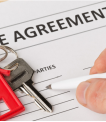Daily Archives: March 18, 2024

Signing a lease arrangement in Georgia can be a substantial move both for property owners and tenants. Comprehending the complexities from the hire deal is crucial to make sure an easy and mutually advantageous tenancy. Here’s a good look at some important points to consider when moving a georgia residential lease agreement:
1. Lease Terminology: Before you sign a lease arrangement, it’s essential to carefully look at the terms and conditions outlined in the document. Pay attention to specifics like the lease contract duration, rent payments sum, past due repayment penalties, and then any additional fees or expenses.
2. Safety Deposit: Georgia rules oversees the handling of safety deposits. Property owners are needed to provide tenants having a written statement outlining the situations under which reductions might be made from the down payment. Additionally, landlords must refund the down payment in just a given timeframe once the lease contract comes to an end, minus any allowable write offs.
3. Residence Upkeep: Both property owners and tenants have duties in relation to home upkeep. The hire arrangement need to obviously summarize who accounts for activities for example yard care, repairs, and pest control. Knowing these obligations can help protect against conflicts during the tenancy.
4. Rent payments Payment: The rent deal need to establish the volume of rent thanks, the expected date, and appropriate repayment techniques. Renters should guarantee they know the implications lately rent payments obligations, which includes any suitable delayed charges or penalty charges.
5. Lease Revival and Termination: It’s crucial that you understand the procedures for hire renewal and termination specified within the hire contract. In Georgia, property owners are needed to supply renters with progress notice prior to terminating a hire or producing modifications to the terms of the arrangement.
6. Lawful Protections: Georgia legislation supplies a number of protections for both landlords and renters. As an example, landlords must give renters with a habitable lifestyle surroundings, although tenants have the ability to security and liberty from discrimination. Being familiar with these legal protections might help both sides uphold their rights within the lease contract.
7. Challenge Quality: In the event of a question from a property owner and renter, the hire agreement may outline for you processes for dealing with disputes. This can involve mediation or arbitration processes made to aid events attain a mutually acceptable quality without relying on lawsuit.
By taking note of these essential facets of a Georgia lease agreement, property owners and renters can ensure an effective and beneficial tenancy. Crystal clear interaction, understanding of proper rights and duties, and adherence to authorized specifications are crucial to get a positive hiring expertise for both parties engaged.

Signing a lease deal is actually a important stage when renting a home in New Hampshire. Whether or not you’re a property owner or even a tenant, there are various key items to consider before signing about the dotted collection. Here’s what you must know new hampshire rental lease agreement:
1. Read the Lease contract Completely: Prior to signing any lease contract, it’s important to look at the record extensively and understand each of the stipulations. Seriously consider particulars such as the length of the lease contract, rent payments quantity, safety down payment, as well as any further conditions.
2. Explain Commitments: Ensure the rent clearly outlines the commitments of the two property owner and also the renter. This can include routine maintenance responsibilities, energy payments, as well as any other commitments related to the house.
3. Discuss Lease Renewal Options: If you’re thinking of a lengthy-expression leasing, go over hire revival options together with the landlord before signing the agreement. Being aware of regardless of whether there is the choice to recharge the hire provides peace of mind and enable you to program for the future.
4. Check out the house: Before you sign the hire, thoroughly examine the property for almost any existing problems or routine maintenance issues. Document any issues you locate and explore them with the property owner to ensure they can be addressed before transfer-in.
5. Fully grasp Eviction Processes: Understand New Hampshire’s eviction processes layed out in state law. Know your rights as being a renter and be aware of the process that need to be implemented if eviction gets needed.
6. Think about More Phrases: Go over any additional terminology or procedures you’d like to incorporate in the lease arrangement with the landlord. These might include regulations regarding pets, using tobacco, vehicle parking, or any other distinct worries.
7. Search for Legal Counsel if possible: For those who have inquiries or issues in regards to the lease contract deal, take into account trying to find legal counsel prior to signing. A true residence attorney can assess the document and make sure that your rights are safeguarded.
8. Keep a Version of the Lease: Once the rent is authorized, ensure that you keep a backup in the papers for your records. Possessing a duplicate available can help if any quarrels arise down the road.
To conclude, signing a lease contract contract in New Hampshire is a significant selection that needs consideration. By carefully analyzing the regards to the rent, being familiar with your rights and responsibilities, and searching for legal advice as needed, you are able to guarantee an easy and positive rental experience.